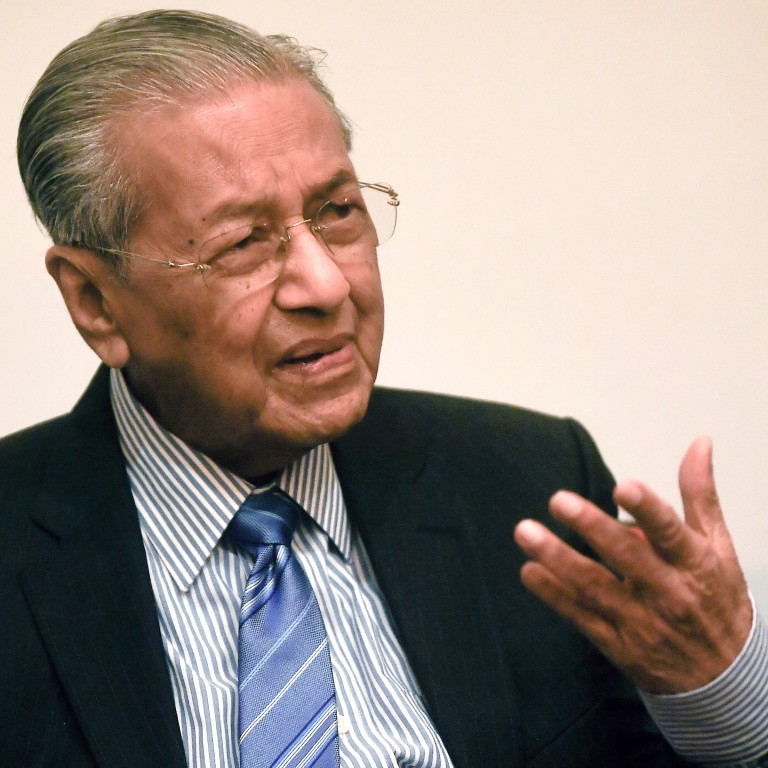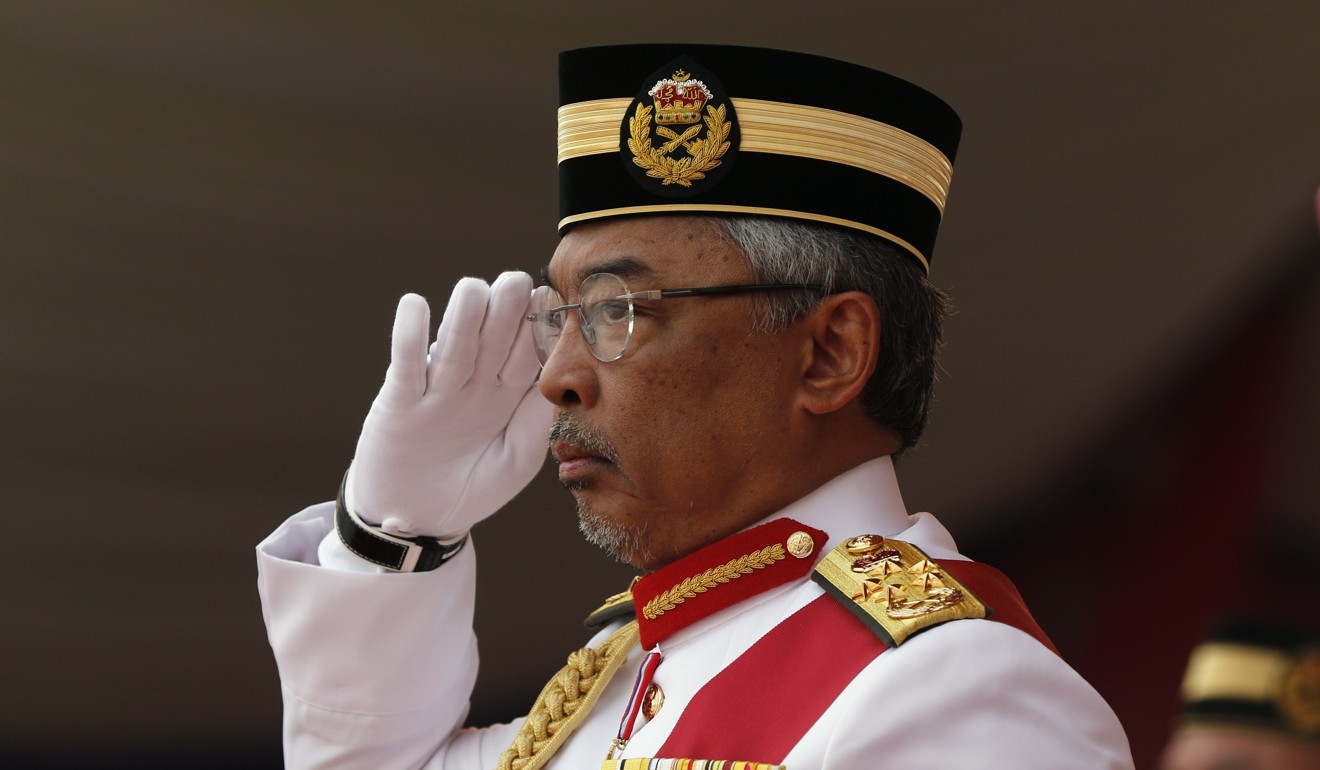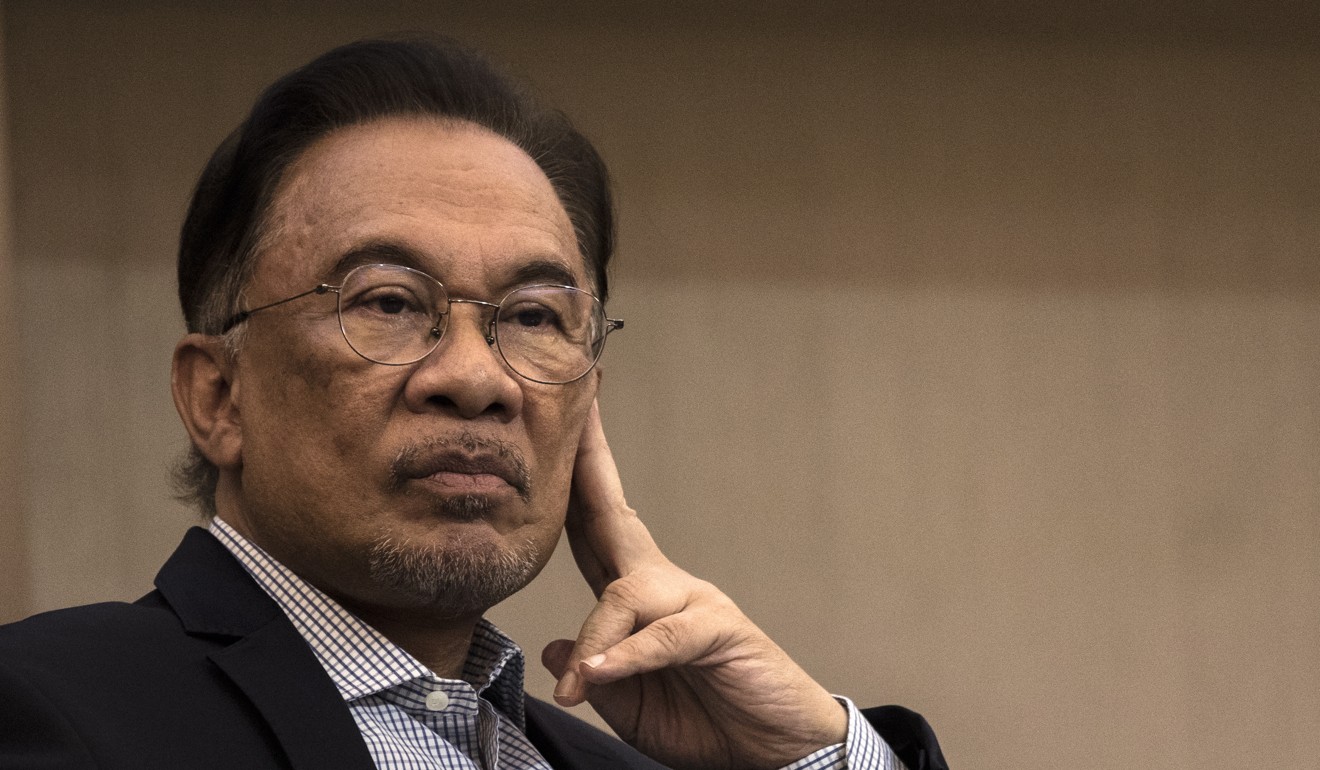
Mahathir Mohamad has resigned. Malaysia’s next leader is ... Mahathir?
- The 94-year-old leader may have tendered his resignation to Malaysia’s king, or agong, but he has subsequently been appointed interim prime minister
- Not only that, but he could be reappointed either by the agong or through a vote of confidence by parliament
However, Mahathir – who was both the nation’s fourth prime minister (between 1981 and 2003) and its seventh (from 2018 until Monday) – has a chance to be reappointed prime minister either by the agong, or through a vote of confidence from parliament, which resumes on March 9.
“If Mahathir goes on as normal and then gets a vote of confidence in parliament, then this solves the issue. Any member of parliament can table the motion, including the government itself through an acting minister,” said Shad, pointing out that since the leader’s shocking resignation after an attempted political “coup d’etat”, many Malaysian political parties had thrown their support behind Mahathir.

Drawing analogies from other nations with a similar common law system, including Britain, Shad said interim leaders were normally appointed for a few weeks but there had been cases of these leaders staying in place for up to half a year.
“Where there is no clear leader, the interim [prime minister] must continue until the agong finds a situation where there is stability,” he said.
Shad’s views were echoed by Attorney General Tommy Thomas, who late on Monday said there was “no time limit to the office of an interim prime minister”.
“An interim PM has all the powers attached to the office of prime minister. That includes appointing or not appointing cabinet members as he wishes,” Thomas told the Malaysiakini news portal.
Mahathir’s next task is to appoint a skeleton cabinet, although it’s not clear whether this interim cabinet must be formally sworn in.
The chief secretary, chief of the defence forces, inspector general of police and the civil service heads of all government ministries remain in place for now, with Mahathir vested with executive powers. Ministries are expected to carry on work as usual, though no large scale projects or endeavours will be approved.
Political scientist Awang Azman Awang Pawi, of the Institute of Malay Studies, suggested this might happen “within two weeks”, providing a period of calm while simultaneously allowing parties to gather political support to see who commands the majority of the 222-seat lower house.
Malaysian king installs Mahathir as interim Prime Minister, after shock resignation
“The king has entrusted Mahathir with bringing relief to the administration, in the form of transparency driven by institutional reforms, despite it being in the early stages. Mahathir in turn has to prove there’s a change or his successor will have to be more transparent and democratic,” he said.

However, right-wing opposition parties that had previously backed Mahathir to serve his full term have reportedly asked the king for an audience to show that they can command the majority of the house.
Margins, say party sources, are razor thin and could go either way.
The Pakatan Harapan coalition, led by Mahathir, toppled the Barisan Nasional coalition in May 2018 after six decades of uninterrupted rule. Subsequently, a host of leaders from the Barisan Nasional’s biggest party, the United Malays National Organisation, were charged with multiple counts of graft and abuse of power.
Battles within Pakatan Harapan, however, began soon after the elections, with the key point of contention being when Anwar, 72, would take over from Mahathir, 94, as per the coalition’s pre-election manifesto.
Malaysia’s Anwar says ‘former friends and traitors’ want to oust government
Mahathir’s surprise resignation followed a flurry of activity at the weekend surrounding an attempt at a “self coup” by a host of politicians from the ruling coalition and the opposition who were adamant the elder statesman complete a five-year term rather than hand over power to Anwar any sooner.
Malaysians confused over what happens next, or who will form the next government, have taken to social media to air their displeasure that such politicking is taking place at a time when the country is grappling with both the coronavirus and a sluggish economy.
It is understood an economic stimulus package meant to be launched this week will now be delayed.
On Twitter, memes and sarcastic tweets calling out both opposition and government figures did the rounds, while a doctored video clip of a brawl from the 2004 comedy Mean Girls labelling characters as Malaysian politicians went viral.
A coalition of civil society organisations released a statement calling for fresh polls, calling the events of the past day “a betrayal of voters, and a disruption to promised reforms”.

